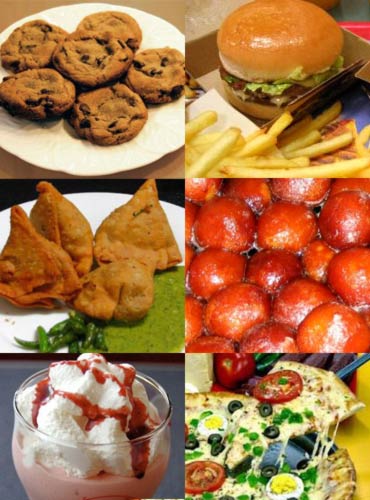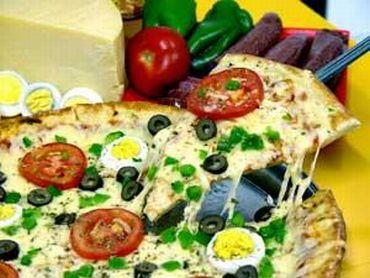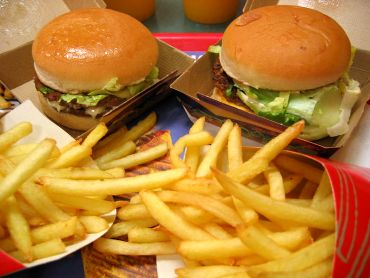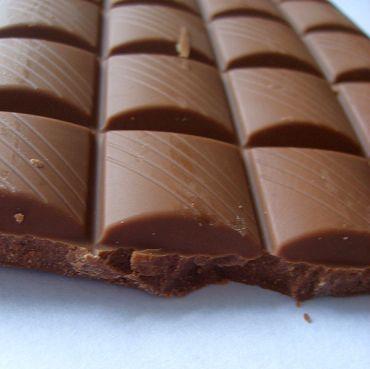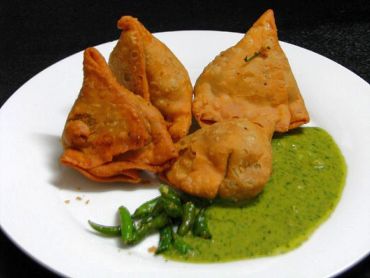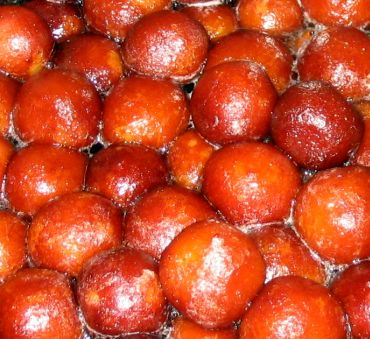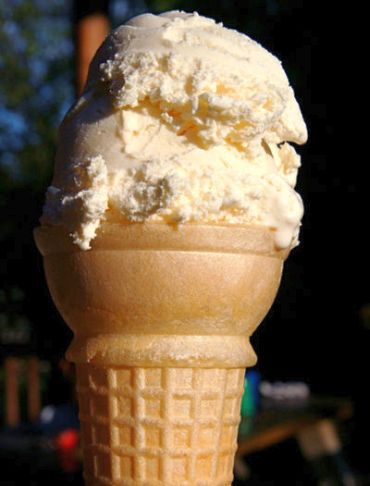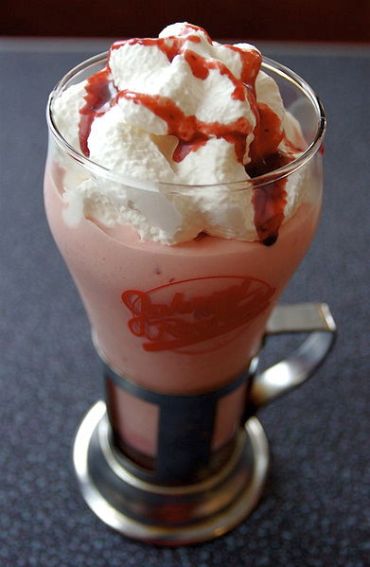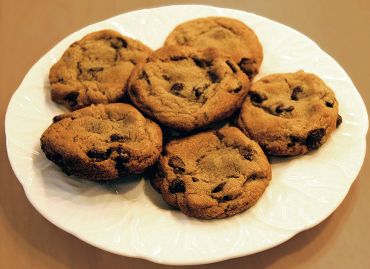 | « Back to article | Print this article |
Tempting but tricky: The top 10 fatty foods!
Contrary to popular opinion, fats are good for you. But when levels in the body are excessive, you run a big risk of health complications.
Fats, also called lipids, play a vital role in promoting healthy cell function, maintaining body temperature and maintaining healthy skin and hair. Fats also serve as energy stores for the body, containing 9 kilo calories per gram, which is double the amount of calories you can get from proteins or carbohydrates (4 kcal/gm). They are essential for brain development and production of cholesterol in the liver. However, when fat levels in the body exceed normalcy, they are associated with health complications such as obesity, high blood pressure and heart diseases.
The conventional wisdom has been that all high-fat foods contribute to cardiovascular risks, promote arteriosclerosis, and contribute to obesity. As with many oversimplifications, this is wrong. All fats are not equal. Fat can be categorised as good fat and bad fat:
- Good fat: This includes unsaturated fat like polyunsaturated fats and monounsaturated fats. Polyunsaturated and monounsaturated fatty acids help lower low-density lipoprotein (LDL) cholesterol or 'bad' cholesterol. Both types are predominantly found in plant products. Examples of polyunsaturated fat food sources include soybean, sunflower, fish and corn oils. Monounsaturated fat is found in high content in olives, peanuts and canola oils.
- Bad fat: This include saturated fats and trans fats. Saturated fats are known to raise cholesterol levels, increasing the risk of heart disease and stroke. They may also increase the risk of certain cancers. Trans fats, in addition to raising levels of bad (LDL) cholesterol also decrease your good (HDL) cholesterol. Many researchers also suspect that trans fats increase the risk not only of heart disease, but also of type 2 diabetes, colon cancer and breast cancer. Major sources of saturated fat are animal food-based products. Trans fats are found in small amounts in various animal products such as beef, pork, lamb and in butter and milk.
Several studies indicate that replacement of food high in saturated fatty acids with polyunsaturated or monounsaturated fat rich foods reduces the total cholesterol and low density lipoprotein (LDL) cholesterol.
In the following pages, we've drawn up a list of foods saturated or bad fats.
1. Pizza
Pizza is a junk food which is tasty as well as filling. People readily go for it, not knowing that just one slice of a medium-sized pizza contains 350 to 500 calories.
Pizza base, which is made up of maida (white flour) is purely refined, containing only plain calories and no other nutrients. On top of that it contains a lot of cheese, which is a milk product high in saturated fat and rich in protein, but which also adds on a lot of calories.
Extra toppings like paneer, chicken or cheese increases the saturated fat content.
2. Burgers
In India, burgers are usually filled with vegetables and patties that are made from chicken or potatoes that are deep fried. Though all of us love them, we forget to check on the calories and fat content.
The patties are deep-fried in oils which are generally high in saturated fats and trans fats.
Another version of the Indian vegetarian burger is the Vada Pav, consisting again of deep-fried potato patties dipped in gram flour (besan) batter.
3. Meat and meat products
These are foods that most non-vegetarians relish. There are different kinds of meats and meat products, like beef, lamb, pork, mutton, chicken, fish and eggs. All of these have high amounts of fat, but fish and chicken are considerably healthier.
Most fish are lower in saturated fat than meat. Some fish, such as mackerel, sardines, and salmon contain omega-3 fatty acids that offer protection against heart disease.
Any pork and beef products contain at least 20-30 percent of saturated fat (bad fat). Though eggs are considered a very good source of protein, we should also keep in mind that the yolks contain high amounts of saturated fat and cholesterol.
4. Milk chocolate
Chocolate is energy-dense, which means it contains comparatively high levels of kilojoules for its weight, approximately 2,200 kJ per 100 gms.
About 60 percent of chocolate fat is saturated and a typical chocolate bar contains 8 grams of saturated fat, so bingeing on chocolate drives up your intake of saturated fat.
Regularly eating energy-dense food is perhaps the fastest way to gain excess weight, but it would be misleading to say that regularly eating chocolate will lead to obesity. Opt for dark chocolate whenever you have cravings, as it is rich in antioxidants. These antioxidants help in fighting against premature aging and heart diseases.
5. Deep-fried foods
These are common snack items at tea-time in any Indian household. But the problem we overlook is that these foods absorb a lot of oil during frying, which directly deposits in our bodies and leads to obesity.
Most of the oils in which these snacks are fried contain a minimum of 13-19 percent of saturated fats. Safflower or sunflower oils have less amounts of saturated fat, so choose those. A better option would be avoiding deep-fried foods and choosing healthy snacks like roasted channa, fruits, multi-grain biscuits etc.
6. Sweets
Sweets are a favourite and the weakness of many people. There are wide varieties or ranges of sweets, made up of ghee, khoa, cream, whole milk, maida (white flour), margarine and butter, which are very rich in saturated fats.
Sugar is the basic ingredient in any sweet and lots of sugar is needed for preparation. Sugar increases the glucose levels in the body and gets stored in the form of glycogen, which later becomes fat. The cooking method, more often than not, involves deep-frying. When frying, food substances absorbs high amounts of oil/ghee or margerine and sweets, which are already rich in milk fat and sugar, become very high in saturated fat as a result.
7. Pastries
Pastries are various kinds of baked goods such as small cakes, tarts and other desserts. A pastry is distinguished from bread because it has higher fat content, which contributes to a flaky or crumbly texture.
The ingredients for basic pastry preparation are maida (white flour), butter/shortening, baking powder, cream and eggs, which make them high in saturated fat. Today there is a variety of pastries available like choco fudge, pineapple pastry etc that contain additional ingredients like choco souce and caramel, which give rise to bad fats. Because of the high saturated fat in pastries, regular consumption should be avoided.
8. Ice cream
Yummy -- that's the first word that comes to mind when we think of ice cream! Young and old, most of us just love it. But does the fact that they are filled with bad fats come to mind too?
Traditionally, ice cream is made with heavy cream loaded with saturated fat. Low-fat ice creams are a healthier choice as they contain less saturated fat, but they can still be high in calories. Gelato is one of the best options available, because it has less air whipped into the product than traditional ice cream. More importantly, it is usually made with milk instead of heavy cream.
9. Cold coffee and milkshakes
Cold coffee, unfiltered coffee such as French press coffee and espresso are rich in fat due to whole milk and cream. They have the ability to raise our cholesterol levels because of an oil called Terpenes found in coffee.
Milkshakes can come in flavours like fruit, vanilla, rose etc and mainly contain whole milk and cream which are high in saturated fats. Also, because they are liquid in nature, they need more sugar. A 150 ml quantity of whole milk contains 6 gms of fat and 100 ml cream contains 10-12 gms of fat. So next time be careful before ordering cold coffee or any milkshake.
10. Cookies
These are a kids' favourite and we enjoy them too. But be careful, because cookies aren't quite as sweet as they seem. They're high in sugar as well as in fats and calories. Most cookies are made either from butter or margarine and both of them are high in bad fats. Butter contains both saturated fats and cholesterol -- the two dietary ingredients that increase blood cholesterol, whereas, margarine is loaded with trans fat. These trans fats are the stiffest and hardest fats of all, which if eaten in large amounts contribute to clogging the arteries, which leads to heart problems.
Although reducing dietary fat is important, eliminating all fat from your diet is not at all healthy. Dietary fat is a main source of energy for the body and it also aids in absorbing vitamins. It's important for proper growth, development and keeping us healthy. The body cannot produce fat on its own; it must be provided through dietary intake. Therefore, you should enjoy some fats in your diet, especially monounsaturated fats like those in olive oil. The key is moderation, not elimination.
